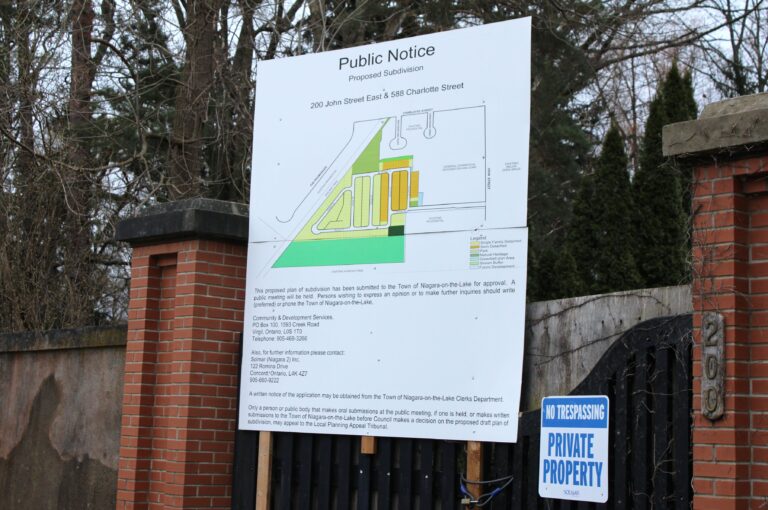A conservation group in Niagara-on-the-Lake is sounding the alarm over changes to the Greenbelt passed by the Doug Ford government.
“It’s uncalled for, and it’s, it’s extraordinary,” said Gracia Janes, a NOTL resident and treasurer of the Preservation of Agricultural Land Society (PALS).
In total, Bill 23, the More Homes Built Faster Act, which was passed Monday by the Conservative party’s majority in the Ontario legislature, will remove 7,400 acres of once-protected land from the Greenbelt.
The government’s changes also would add about 9,400 acres to the protected area.
The changes to the Greenbelt under the act do not directly impact any land in Niagara-on-the-Lake.
They do, however, remove some lands now designated for tender fruit growth around Grimsby, according to the amendments posted on the government’s environmental registry.
Prior to the bill’s passage, PALS warned the provincial government, the changes “could trigger more removals, that could eliminate the viability of the Niagara fruit belt.”
Janes worries that the move sets a dangerous precedent.
“This is symbolic,” she said, adding that “the pressure will be even more than it is right now, development-wise” the next time the use of tender fruit land comes under consideration.
According to a document outlining the group’s concerns with the legislation, “the boundaries of Niagara’s fruit belt lands are supposed to be permanent.”
Tender fruit lands are used to grow peaches, cherries, plums and grapes. Those fruits are essential to the economy of Niagara-on-the-Lake and to the wider region, but they only make up 0.004 per cent of Canada’s entire land mass.
“It’s a very small area compared with the rest of the farmlands in Ontario and Canada,” Janes said.
About 94 per cent of Ontario’s grapes and 90 per cent of its peaches are grown in Niagara.
The Greenbelt was established in 2005 by Dalton McGuinty’s Liberal government with the intention of reducing urban sprawl and protecting farmable lands from development, according to the Greenbelt Foundation’s homepage.
Sprawl is a concept city planners use to describe development that takes up a lot of land but has low population density.
The legislation, tabled Oct. 25, drew heavy criticism from conservation authorities, agricultural advocates and city planners for violating the established Greenbelt principles.
“This is supposed to be for affordable housing, not sprawl. And what they’ve got is going to be sprawl,” Janes said.
The preservation group Janes represents has been a forceful defender of the agricultural industry since its founding in 1976.










